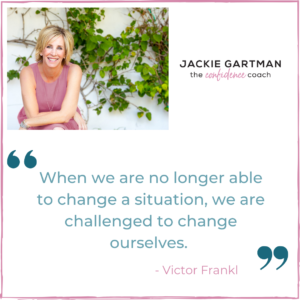Ever wonder why your creative bursts or the perfect solution to your problem occurs at 3:00 a.m.? Most of my inspiration comes when I’m either in the carpool line waiting to pick my daughter up from school or when, yes, I’m sitting on the toilet. Often, solutions to problems are best found when you are not focusing or over-thinking the problem. Sounds counterintuitive doesn’t it? Whenever I’m faced with a problem or dilemma, I find that thinking about it too much produces the opposite result I’m looking for – the solution or most of the time, in my case, my next blog topic.
Next time you’re looking to solve a problem or searching for some inspiration, try giving your mind a rest and do something creative. Paint, write, exercise or do what I do – just stop thinking about it, sit on the toilet and you just may find that the perfect solution suddenly appears without any work, sweat or effort.
Read on about why over-thinking a problem can actually hinder you.
No-Thinking Zone
No-Thinking Zone
By Derrick Carpenter
By Derrick Carpenter – September 22, 2009
 I over-think. A lot. And I bet many of you can relate. My over-analysis rarely takes me to a higher state of being. In many cases, I get caught in spirals of “What if…?” and “If it wasn’t for…” that spin me around until I’m exhausted but still standing in exactly the same place. Most therapy and coaching practices ultimately focus on shifting energy from self-defeating thoughts to more self-serving ones. This is the foundation of cognitive-behavioral therapy. Lately, however, I’ve been thinking (obviously) that thinking less may be an equally viable alternative. We spend our days focusing on problem solving, multitasking, relating, and reading the latest facebook update. Maybe our minds just need more rest!
I over-think. A lot. And I bet many of you can relate. My over-analysis rarely takes me to a higher state of being. In many cases, I get caught in spirals of “What if…?” and “If it wasn’t for…” that spin me around until I’m exhausted but still standing in exactly the same place. Most therapy and coaching practices ultimately focus on shifting energy from self-defeating thoughts to more self-serving ones. This is the foundation of cognitive-behavioral therapy. Lately, however, I’ve been thinking (obviously) that thinking less may be an equally viable alternative. We spend our days focusing on problem solving, multitasking, relating, and reading the latest facebook update. Maybe our minds just need more rest!
The Importance of Rest and Recovery
Our brains weren’t designed to think non-stop. They naturally shut down to recover and consolidate information while we sleep. According to David Dinges, Ph.D., a sleep expert at the University of Pennsylvania, if a research subject who’s been awake for 22 hours gets behind the wheel of a car, he will have the same ability as someone with a .08 blood-alcohol level. For those students reading this, remember that the next time you contemplate an all-nighter. Practitioners of meditation achieve additional rest as they aim to quiet their conscious minds, and anyone taking part in an activity inducing flow may experience the same results.
Jim Loehr and Tony Schwartz train executives using models that have proven successful with high-level athletes. One of the key components of their model involves cycles of rest and recovery. A top-level athlete would never train non-stop. Intense training is completed within a carefully constructed timeframe of rest, replenishment, and recovery. The body needs these breaks in order to make the biggest gains from training sessions. They claim our minds work the same way. An over-scheduled CEO whose brain is constantly on its feet will benefit tremendously from incorporating mental rest periods throughout her day and week. Shifting energy from the business-minded left brain to the creative right brain provides an oscillation of energy that stimulates and rests the whole mind.
Is Thinking Always the Best Approach?
 Research by Dutch psychologist Ap Dijksterhuis and his colleagues has shown that shutting down analytical thought may be advantageous in solving logic-based problems. They fed research participants in three conditions a ton of information about a series of apartments and asked each to choose the optimal apartment. Those given time to work out the solution performed better than those asked to respond right away. But the interesting finding was in the third case. These participants were pulled away immediately after hearing the apartment data to focus on another task. After working on that task a while, they were immediately asked for the optimal apartment. Although they had no time to consciously work out the numbers, they outperformed both of the other groups.
Research by Dutch psychologist Ap Dijksterhuis and his colleagues has shown that shutting down analytical thought may be advantageous in solving logic-based problems. They fed research participants in three conditions a ton of information about a series of apartments and asked each to choose the optimal apartment. Those given time to work out the solution performed better than those asked to respond right away. But the interesting finding was in the third case. These participants were pulled away immediately after hearing the apartment data to focus on another task. After working on that task a while, they were immediately asked for the optimal apartment. Although they had no time to consciously work out the numbers, they outperformed both of the other groups.
And these mental shifts may be more powerful than just solving logic problems. Author of A Stroke of Insight, neuroscientist Jill Bolte Taylor describes the experience of having a stroke after waking up one morning. The hemorrhage in her left brain hemisphere quieted that part of her mind and opened her attention to her right brain which was filled with feelings of peace, connectedness, and oneness with the universe. While she knew she was in trouble and needed help, she was in awe of what the other half of her brain was capable of. Her talk on TED is incredibly compelling.
Meeting Your Needs
 So if our analytical brains need a rest, and we can benefit greatly from that rest, how do we achieve that? I think that may vary from person to person, but any creative outlet that limits your thinking may provide the rest you need. My current choice is to reconnect with musical creativity in the form blues guitar lessons. I’ve been inspired lately by many of John Mayer’s insightful song lyrics and figure getting lost in consciousness playing bluesy guitar riffs a couple hours a day might provide me the same enlightenment. I’ll keep you posted.
So if our analytical brains need a rest, and we can benefit greatly from that rest, how do we achieve that? I think that may vary from person to person, but any creative outlet that limits your thinking may provide the rest you need. My current choice is to reconnect with musical creativity in the form blues guitar lessons. I’ve been inspired lately by many of John Mayer’s insightful song lyrics and figure getting lost in consciousness playing bluesy guitar riffs a couple hours a day might provide me the same enlightenment. I’ll keep you posted.
Please share your favorite creative outlets for resting your analytical mind in the comments.
Images:
Over-thinking courtesy of striatic
Roger Federer courtesy of y.caradec
No-thinking zone courtesy of chris.corwin
John Mayer courtesy of P.Kelgan
References:
Dijksterhuis, A., Bos, M., Nordgren, L, & van Baaren, R. (2006). On making the right choice: The deliberation-without-attention effect. Science, 311(5763), 1005-1007.
Dinges, D. (2006). The neural basis of inter-individual variability in inhibitory efficiency following sleep deprivation. The Journal of Neuroscience 26(27), 7156-7162.
Loehr, J., & Schwartz, T. (2001). The Making of a Corporate Athlete. Harvard Business Review, January 2001, 120-128.
Taylor, J. B. (2006). My Stroke of Insight: A Brain Scientist’s Personal Journey. Lulu.c





